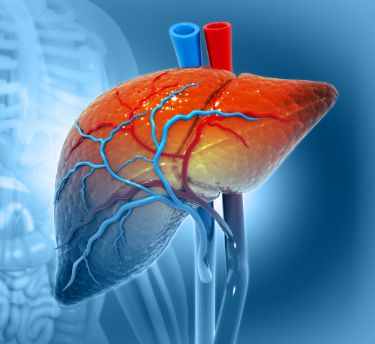Our Doctors
Meet all the doctors from Cleveland Clinic Abu Dhabi.
View Doctors

Your liver is a large organ that sits on the right side under your ribcage. It performs many important functions in your body, such as separating nutrients and waste which pass through the digestive system. It also produces bile, which helps the digestion of food and carries toxins out of your body.
Liver disease refers to conditions that affect and can damage your liver. There are many different types of liver disease, which can be caused by several different things. Over time, liver disease can cause permanent damage to the liver, in the form of scarring (cirrhosis). As scarring builds up, serious complications can develop and the liver struggles to function properly. This can cause liver failure and liver cancer may develop.
If liver disease is detected early, treatment can be given to heal damage and stop liver failure from happening in the future.
• Viral infections: Diseases such as hepatitis (A, B and C) which are caused by viruses.
• Autoimmune diseases: These cause your own immune system to attack your liver.
• Genetic diseases: Liver problems can be inherited from your parents.
• Liver cancer: When tumors form in the liver.
• High intake of toxins: Ingesting too many toxins, such as alcohol, can cause liver disease.
• Obesity: Can lead to a build-up of fat in the liver and lead to a condition called fatty liver disease.
Many types of liver disease, including fatty liver disease, usually have no symptoms. If they are present, symptoms can include:
If the liver damage has caused the liver to fail, symptoms may include:
Many of the more common types of liver disease are preventable. Lifestyle changes can reduce your risk of developing liver disease, including:
There are a variety of techniques available to diagnose liver disease, including:
Treatment for liver disease will depend upon the type of liver disease, how much damage there is, and whether the liver is failing. Treatments include:
© Copyright 2017 Cleveland Clinic Abu Dhabi. All rights reserved.
This information is provided by Cleveland Clinic Abu Dhabi, part of Mubadala Healthcare, and is not intended to replace the medical advice of your doctor or health care provider. Please consult your health care provider for advice about a specific medical condition.
We’re here to make managing your healthcare easier.